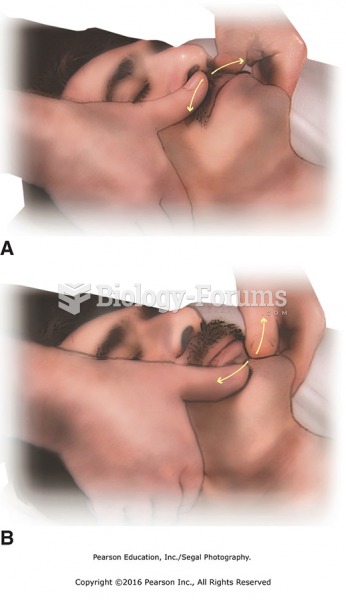|
|
|
According to the American College of Allergy, Asthma & Immunology, more than 50 million Americans have some kind of food allergy. Food allergies affect between 4 and 6% of children, and 4% of adults, according to the CDC. The most common food allergies include shellfish, peanuts, walnuts, fish, eggs, milk, and soy.
The first monoclonal antibodies were made exclusively from mouse cells. Some are now fully human, which means they are likely to be safer and may be more effective than older monoclonal antibodies.
More than 34,000 trademarked medication names and more than 10,000 generic medication names are in use in the United States.
Green tea is able to stop the scent of garlic or onion from causing bad breath.
When blood is deoxygenated and flowing back to the heart through the veins, it is dark reddish-blue in color. Blood in the arteries that is oxygenated and flowing out to the body is bright red. Whereas arterial blood comes out in spurts, venous blood flows.
 This 19-year-old in Wisconsin was given a reduced jail sentence for holding this sign in front of ...
This 19-year-old in Wisconsin was given a reduced jail sentence for holding this sign in front of ...
 Place one hand on the medial and one on the lateral thigh to begin horizontal stroking. Slide hands ...
Place one hand on the medial and one on the lateral thigh to begin horizontal stroking. Slide hands ...





